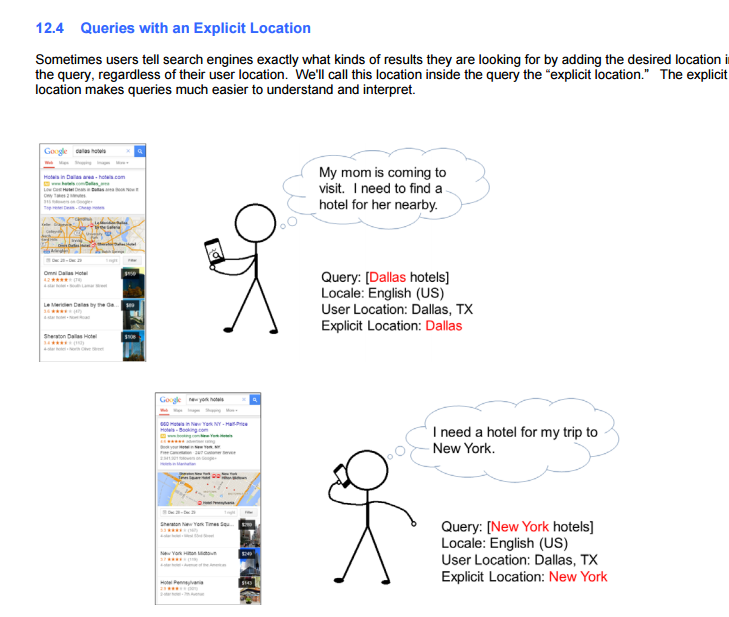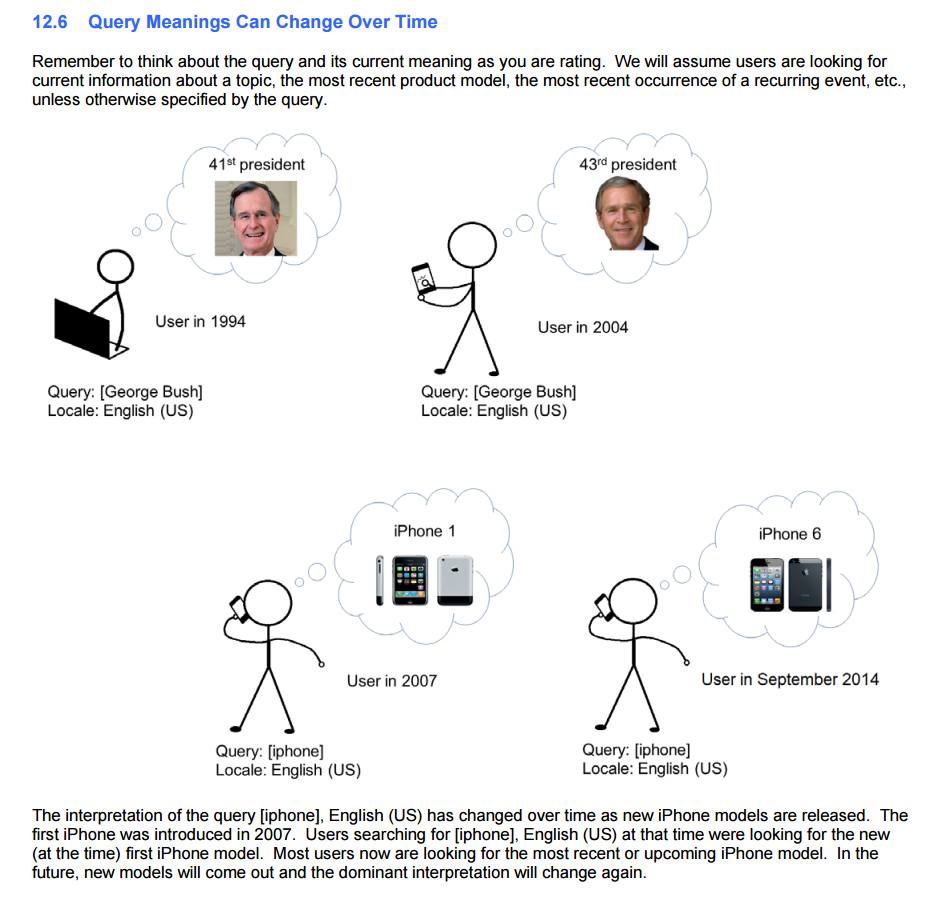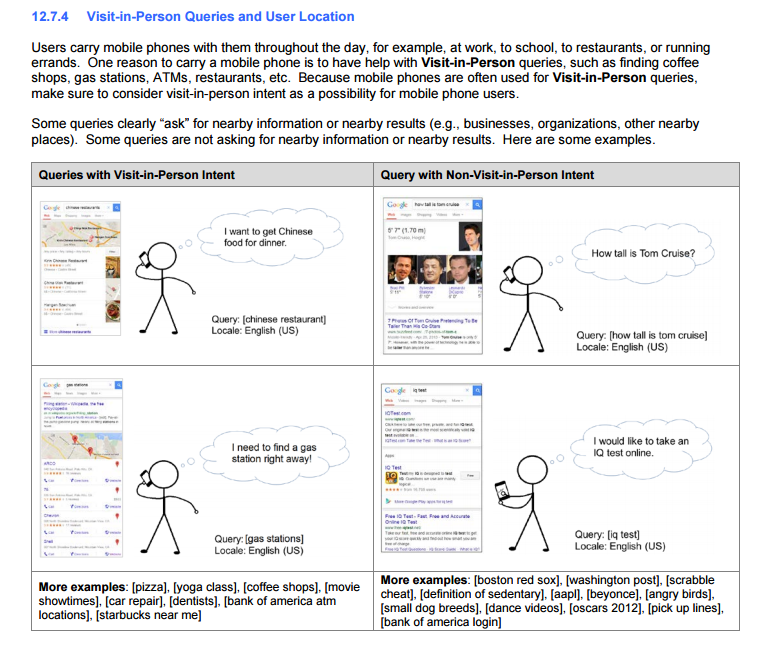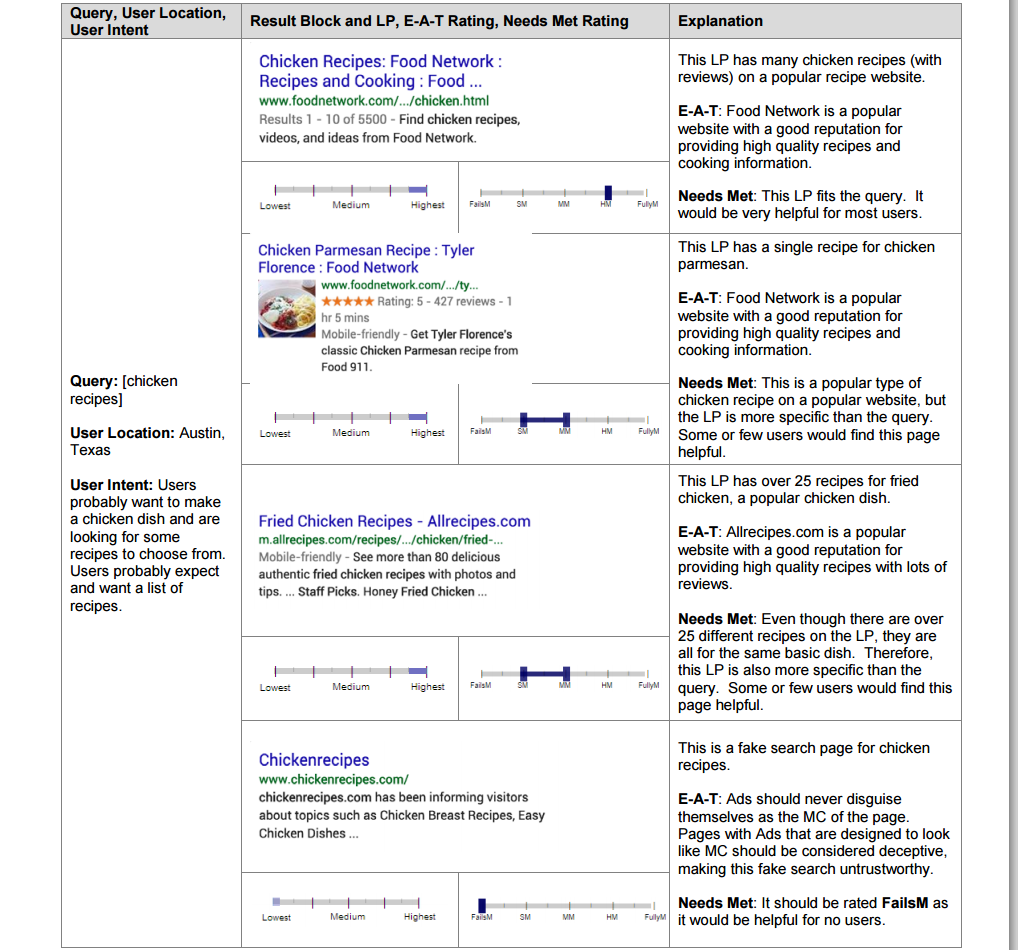
Posted by
Michael Lerner
Google is “hands on” in the beginning stages of algorithm changes. Human evaluators take Google’s website quality guidelines and then look at different webpages and grade the search results accordingly. These evaluators, take web pages that searches deliver and rate them against a set of Search Quality Rating Guidelines.
Google’s search quality guidelines are chock full of SEO hints and the Quality factors that they look for in a website. For instance, in the 160 page document you will find important website guidelines and hints at how queries are processed by Google Search.
Google describes the algorithm change process as something that combines engineering, human testing, real time sample results and machine oriented implementation. Sometimes your Google search interface will change briefly, it could be that Google is running a test, and you are among the small number of people sampled and given a blind run of a new feature or result. The human evaluators are a large group which bring precise evaluations of web pages and Search Result Page ratings to the table.
Google is looking for human input on questions like, does the webpage or result “Meet the User’s Need” p 151. The guidelines cover many different types of queries, Section 19.2, Name Queries and Spelling Mistake Queries. The document covers topics from children’s clothes to ****.
Google reveals the basic reasons why a website exists. This information can help a content manager or web designer to focus their ideas in the creation and execution of a site that will optimize in Search Results.
What is the Purpose of a Webpage
“The Purpose is the reason or reasons why the page was created… Most pages are created to be helpful for users. Some pages are created merely to make money with little or no effort to help others. Some pages are even created to cause harm to users. The first step in understanding a page is figuring out its purpose.”
More about the purpose…
- The goal of Page Quality (PQ) is to determine how well a page achieves its purpose….
- We (Google) have different standards for different types of pages. By understanding the purpose of the page you’ll better understand what criteria are important to consider when evaluating that particular page.
- Websites and pages should be created to help users. Websites and pages which are created with intent to harm users, deceive users, or make money with no attempt to help users, will receive a very low PQ rating.
Highest Quality Content
Here Google is giving the reasons how given webpages succeed in their mission. Note, there are no links to actual websites in the Google document, the links go right into the evaluator interface.
Page Quality Guidelines, High Quality Content Details;

Website Mission, an Unsatisfying Amount of Info about the Website
Google Guidelines offers a description of why a page may receive a unsatisfying rating. Specially treated websites called, Your Money or Your Life,YMYL is a type of website category that include lawyer websites, medical recommendations, safety and protection, etc. are held to a higher standard of Page Quality, “They are pages that can have an impact on your current or future well being (physical, financial, safety, etc.).”
“We expect some form of website information for many or most websites. However, the amount of website information needed depends on the purpose of the website. For personal websites, an email address alone may be sufficient.”
“Stores and websites which process financial transactions require a high level of user trust. If a store or financial transaction website has just an email address and physical address. It may be difficult to get help if there are issues with the transaction. Likewise, many other types of YMYL websites also require a high degree of user trust. Just an email address and a physical address may not give users enough information to feel the website can be trusted.”
This goes along with Google’s interpretation of websites categorizing them according to it’s “kind” or entity. This type of interpretation of a site came up around the Hummingbird update in 2013.
Mobile Results
Understanding Mobile User needs. There’s a long section describing mobile search results and their special characteristics.
Mobile Query Details about Explicit Location

Query Meanings Change Over Time
We can see from the guidelines that query and keyword searches are still very important. But the context of the query is equally and maybe more important as we see in this diagram about how the query George Bush changes from year to year.

Location Query and Visit-in-Person Queries
It’s interesting the way that Google names categories of queries. No doubt that this mirrors the way the Google Search Algorithm learns and categorizes a query in order to answer it correctly. Here Quality Guidelines define a Visit-in-Person intent and how it differs from a Non-visit-in-person intent. Also in this diagram, we see how Google takes a short query input and turns it into a question. For example, the query, “chinese restaurant” from a cell phone really means, “I want to get Chinese Food for dinner.”
Is it a Visit-in-Person Query or Not?

Expertise/Authoritativeness/Trustworthiness (E-A-T)
Results for chicken recipes; giving a high, medium and low score. These scores are based on Expertise/Authoritativeness/Trustworthiness (E-A-T). Here’s how four different webpages score for the same query, chicken recipes. The explanation of which chicken recipe page rated the highest and lowest shows the authority of the Food Network website, it’s many (but not an overwhelming) amount of recipes and reviews most fit the user’s request for a website about chicken. Of course the spammy site rated lowest.
What’s the Best “Chicken Recipe” Webpage?

All in all, Google’s Page Quality Guidelines show that queries and keywords still have a great deal of weight in search. The queries are weighted by first and foremost user intent and the best possible answer for every category of question. While working on your keyword research, be sure to have users in mind, delivering the best possible webpage.




